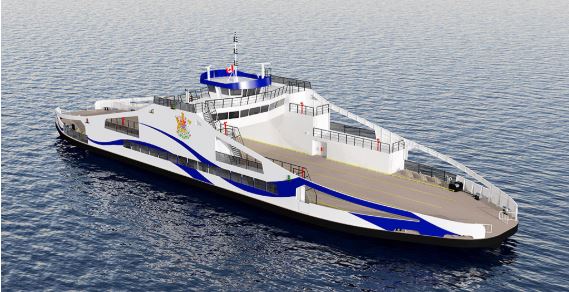Among the highlights of the 2020 NDP budget for British Columbia, is the welcome replacement of the half-century old MV Balfour.
Though work has already begun to acquire the new vessel, the B.C. government says it wont be delivered until the end of 2022, and ready for service by 2023.
Nelson-Creston MLA Michelle Mungall was pleased to announce that the new ferry would be able to run on diesel before being converted to a greener alternative.
“Once we have all the infrastructure to charge it up at both terminals, it will be an electric run ferry,” said Mungall.
The estimated timeline for the vessel to be fully electric is by 2030, given that shore power is installed and the technology is reliable enough to use on a daily basis. One of the benefits of the new ferry being able to run on diesel beforehand is that it may act as an emergency backup fuel source.
The BC government also says the new vessel will accommodate between 50 and 60 vehicles, and that it will be used in tandem with the larger MV Osprey to decrease sailing waits during the busy summer seasons.
As for where it will be built, three B.C. firms have been shortlisted for the project. The firms include:
- Allied Shipbuilders Ltd. of North Vancouver
- Waterbridge Steel Inc. of Nakusp
- Western Pacific Marine Ltd. of Vancouver
“Everybody would love to see it built in our own back yard, including myself,” said Mungall. “However, there’s a lot of things that go into these decisions that have to put politics aside and make sure that we’re making the best decision to build the right vessel safely and in a way that’s cost effective.”
For more updates on the Kootenay lake Ferry upgrade, visit: www2.gov.bc.ca/gov/content/transportation/transportation-infrastructure/projects/kootenay-lake-ferry-project




